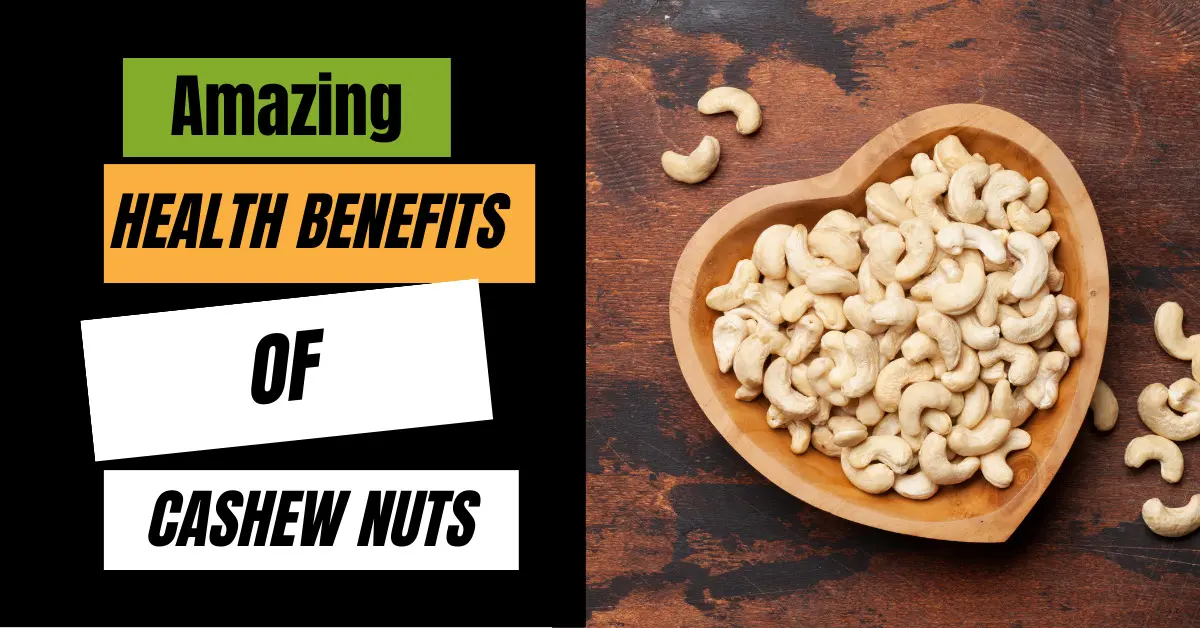Cashew nuts are a popular snack and ingredient in mand buttery flavor. But did you know that they also offer a range of health benefits? In this article, we will explore the surprising health benefits of cashew nuts and compare them to other nuts.
Health Benefits of Cashew Nuts
Cashew nuts offer a variety of health benefits. They are rich in essential nutrients such as healthy fats, protein, and fiber and can help improve brain function, lower blood pressure, and improve cholesterol levels. While they are not the only nut with nutritional value, they are a great addition to a healthy diet when consumed in moderation. Potential side effects include allergic reactions and weight gain, but by storing cashews properly, you can enjoy their delicious flavor and health benefits for years.
Good for brain health
One of the health benefits of cashew nuts is that it is a good source of Magnesium and help regulate neurotransmitters, which transmit signals throughout the brain and nervous system. It can help improve mood and reduce the risk of depression and anxiety.
Help lower blood pressure and reduce inflammation.
There are lot health benefits of cashew nuts as they contain a variety of nutrients that can help improve cardiovascular health. They include a lot of monounsaturated and polyunsaturated fats that can also help reduce inflammation and cholesterol. These factors can help reduce the risk of heart disease and stroke.
Improve cholesterol levels
Cashew nuts contain high levels of healthy fats, including oleic and linoleic acid, which can help improve cholesterol levels. Oleic acid has been shown to help increase HDL (good) cholesterol levels, while linoleic acid can help lower LDL (bad) cholesterol levels.
Important nutrients in cashews
Cashew nuts are a rich source of essential nutrients, including healthy fats, protein, and fiber. They are also a good source of vitamins and minerals such as magnesium, copper, and phosphorus.
Comparison with other nuts
Top 3 healthiest nuts: almonds, pistachios, and walnuts
While cashew nuts offer a range of health benefits, they are not the only nut with nutritional value. Health experts say the top three healthiest nuts are almonds, pistachios, and walnuts. These nuts are all rich in protein, healthy fats, and fiber and can help reduce the risk of heart disease and other health conditions.
Comparison of walnuts and cashews
When comparing walnuts and cashews, it is essential to note that they have distinct nutritional profiles. While both nuts are good sources of healthy fats and protein, walnuts are higher in omega-3 fatty acids, which can help reduce inflammation. Cashews, conversely, are higher in iron, magnesium, and zinc, which are essential for maintaining healthy bones and immune function.
Benefits of each type of nut
Each type of nut offers unique health benefits. Omega-3 fatty acids are abundant in walnuts and may aid in lessening inflammation and enhancing brain health. Potassium, abundant in pistachios, may help lower blood pressure and the risk of heart disease. Almonds are a good source of vitamin E, which can help improve skin health and protect against oxidative damage.
Consumption and storage
When consuming cashew nuts, it is vital to do so in moderation and be aware of potential side effects such as allergic reactions and weight gain. The recommended serving size for cashews is one ounce or about 18 cashews. Store cashews in an airtight container in a cool, dry place to keep them fresh, and avoid storing them in the refrigerator.
Recommended serving size
While there is a wide range of health benefits of cashew nuts it is essential to consume them in moderation. Consuming too many cashews can lead to weight gain and other potential side effects. The recommended serving size for cashews is one ounce or about 18 cashews.
Best time to eat cashews
Cashew nuts can be consumed at any time, but many people prefer to eat them as a snack between meals. Eating a small handful of cashews can help keep you feeling full and satisfied between meals, and their nutrient-dense profile can help provide sustained energy throughout the day.
Cashews can also be added to stir-fries and salads for flavor and nutrition. They can be used as a topping for oatmeal or yogurt or even ground into a paste to make sauces or spreads.
When consuming cashew nuts, it is vital to do so in moderation and be aware of potential side effects such as allergic reactions and weight gain. The recommended serving size for cashews is one ounce or about 18 cashews.
Potential side effects, such as allergic reactions and weight gain
There is a huge range of health benefits of cashew nuts, so it is essential to be aware of potential side effects when consuming them.
One potential side effect is allergic reactions. Cashew allergies are rare but can be severe and even life-threatening for some individuals. Symptoms of a cashew allergy may include hives, swelling of the face or mouth, difficulty breathing, or anaphylaxis. If you experience these symptoms after consuming cashews, seek medical attention immediately.
Another potential side effect of consuming cashews is weight gain. While cashews are a healthy snack in moderation, they are also high in calories and fat. Consuming too many cashews can lead to weight gain and other health issues.
Consuming cashews in moderation is crucial as being mindful of your tolerance to prevent any unwanted effects. The recommended serving size for cashews is one ounce or about 18 cashews.
Tips for storing cashew nuts to keep them fresh
For keeping cashew nuts fresh, storing them in an airtight container in excellent, dry places will help prevent them from becoming rancid or losing their flavor. It is also best to avoid storing cashews in the refrigerator, as they can absorb odors from other foods.
Conclusion
There is surprising a range, of health benefits of cashew nuts including improved brain function, lower blood pressure, and improved cholesterol levels. They are also a good source of essential nutrients such as healthy fats, protein, and fiber. While they are not the only nut with nutritional value, they offer unique benefits that make them a great addition to any healthy diet.
When consuming cashew nuts, it is vital to do so in moderation and be aware of potential side effects such as allergic reactions and weight gain. Following these guidelines and storing cashews properly, you can enjoy their delicious flavor and nutritional benefits for years.

